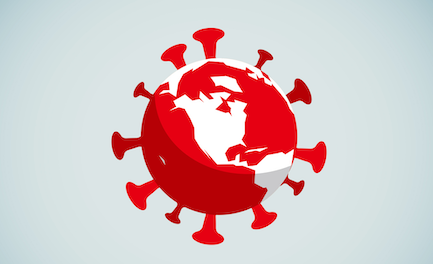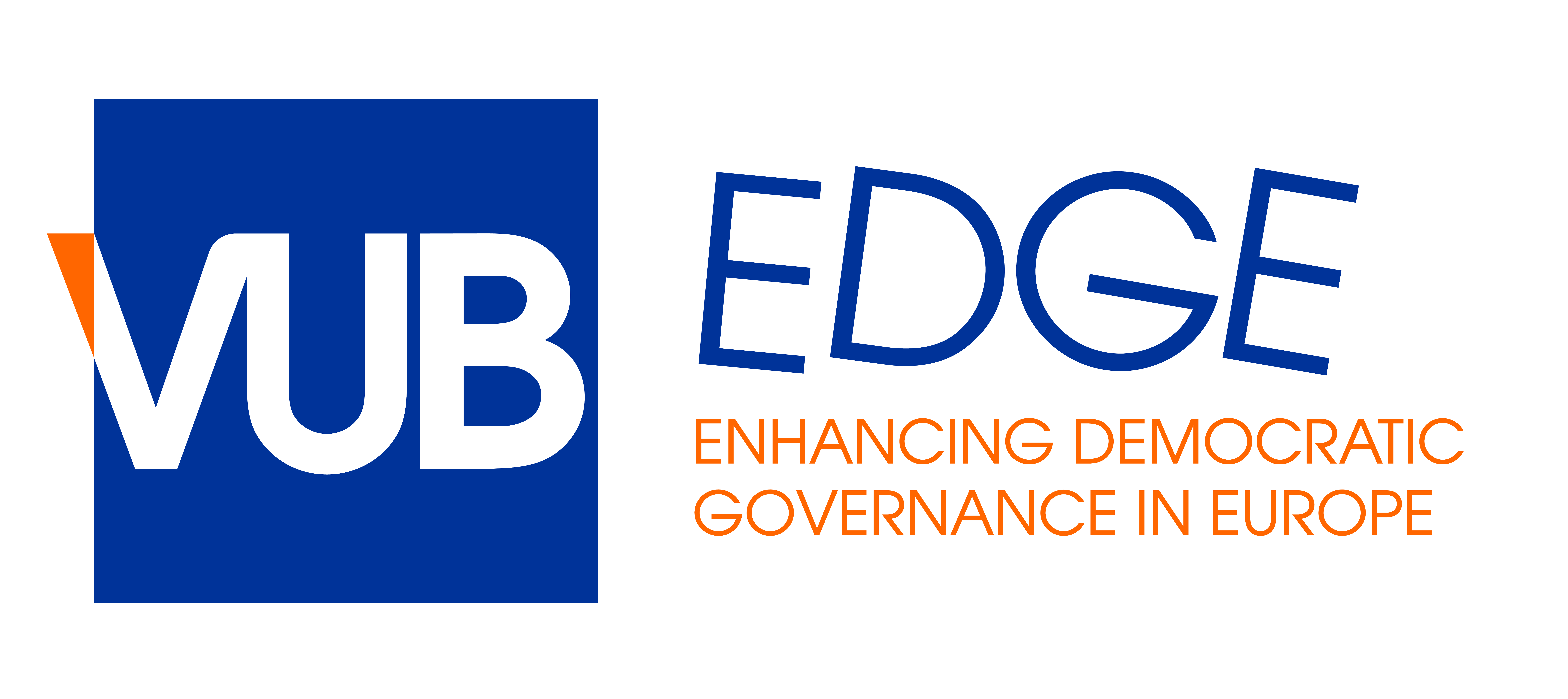
We are experiencing a strange kind of “Silent Spring”. Not in the sense meant by Rachel Carson in 1972, where she denounced the environmental crisis, but a spring where relatively silent affects are mobilizing society: grief, fear, loneliness and sorrow. The political vocabulary that surrounds the ongoing corona-crisis – from “isolation” to “social distancing” – conveys the impression of an entire society which has gone still, and which has done so relatively obediently. Yet, at the same time, signs of rebellion are already surfacing with citizens across the world protesting against the style or magnitude of the lockdown measures imposed by governments. This blog post is about the current crisis looked at from the perspective of political affect. In particular, I attempt to situate the current affects of obedience against a broader background of contestation and the significantly “louder” affect of indignation.
For political researchers, the affects underlying our current obedience are particularly relevant to study. They inform us on a distinctive type of political behaviour that does not belong to our modern political imaginary: a resilience and willingness to obey measures that put the collectivity before the individual and that evoke images of war-time history - surveillance, rationing, repression. In the context of the corona-crisis, citizens around the world have shown a remarkable level of diligence and, indeed, obedience, to the dramatic restrictions imposed on their personal freedoms and ability to earn a decent living. But are we obeying out of fear (of catching the virus ourselves)? Out of compassion (for others)? Resignation (we don’t have a choice)? Or because of a genuine trust for the scientific experts that is informing political decisions? Understanding these affective dynamics is important for at least two reasons: to analyze comprehensively what’s happening here and now, but also to anticipate what might legitimize extraordinary measures in the future, in response to other crises.
It is possible that the legitimacy of the current restrictions is largely founded in the perceived impartiality of experts that are guiding political decision-making (Rosanvallon, 2011). But it’s also likely that this impartiality alone, doesn’t suffice to explain our willingness to obey rules that restrain our personal freedoms. The current context is unveiling just how important the “political” role of governments is: showing leadership, striking compromises, making hard decisions and expressing compassion in these unprecedented times. Something which cannot be boiled down to the art of implementing scientific information. In the domain of climate change, “following the sciences” clearly hasn’t been a winning strategy for governments trying to impose unpopular measures on their populations (think of, for example, the massive uprising of the Yellow Vests in France that followed the introduction of an environmental tax). Hence, the ability for governments to generate legitimacy and obedience probably has other foundations, including affective ones. In the present case, the drastic measures may appear “legitimate” out of compassion and solidarity for the vulnerable, out of duty to contribute to the collective effort, but also, most certainly, out of the abyssal fear we feel at the thought of losing a loved one. This should be a matter for empirical investigation. If fear is what underlies our obedience, it has implications. Fear is what freezes our actions; we become literally petrified into political obedience, but it may also, in other contexts, have long-term effects such as alienation, survivalism, or xenophobia (Nussbaum, 2018).
The silence and obedience we are experiencing today – whether underpinned by fear or by something else - is particularly noteworthy when contrasted with the period of “noise” and disobedience we have experienced in 2019, in particular surrounding the climate crisis. Here, after years of relative obedience, society experienced a kind of affective bifurcation (Lordon, 2016): what was tolerated yesterday (inaction on climate change) became intolerable for increasing parts of the population. Millions of youngsters and citizens worldwide, under the banner of movements such as “Fridays for Future” or Extinction Rebellion, have been gathering to demand political action and indeed, some form of restriction of our human activities (e.g. a slowing down of economic growth, a change in consumption patterns, etc). Most strikingly, these movements have become notorious precisely for their civil disobedience (school-strikes, blockades, occupations) as a privileged repertoire of action. Yet, so far, with little results on concrete policies and political decisions, let alone a collective willingness to accept restrictions of a similar kind to the ones we are experiencing today (and rightly so, given the fundamentally different nature of the two crises).
In affect-theoretical terms, the affect underlying this disobedience is indignation. Historically, indignation has been attached to moments of profound political revolution (Hardt & Negri, 2009). In Marxist political philosophy (Stolze, 2019, Lordon 2016, Grattan, 2011), indignation is that point where a state loses its legitimation ability, a moment of rupture that can lead to insurrection. According to Spinoza, indignation is also that point where fears turn into a desire for rebellion; where the civil state turns into a state of war. In the social movements literature, it is recognized as a form of moral anger that ignites protest and collective action (Jasper, 2014). And following the Indignados and Occupy movements in 2011, it became a kind of lingua franca of contemporary contestation. Indignation, and its power to trigger rebellion, is hence the polar opposite to the affects underlying political obedience. Together, indignation and obedience produce a kind of pendular movement that rhythm political life, by demarcating the tolerable, from the intolerable.
This articulation between fearful obedience and rebellion is perhaps exactly where we are at now: the moment preceding a new cycle of contention. After weeks of relative “silence”, citizens are emerging out of obedience and showing signs of indignation. In Italy, fear of precarity, and precarity itself, have triggered riots and supermarket raids since the beginning of April, sparking serious concerns of social unrest in some of Italy’s most impoverished regions. In France, there are rumours of Yellow Vests and “White Gowns” (protestors from the health-care sector) joining forces to organize an after-covid 19 uprising. Citizens in Spain, but also here in Belgium, have reacted indignantly to the political decisions affecting the elderly in the “management” of the corona-crisis. In Germany, a protest was organized on 15 April 2020 by citizens to resist the lockdown measures and demand a guarantee that the right to assemble be respected, despite the social distancing measures. In the US, indignation is already widespread as groups of citizens protest against the governmental measures that were taken to slow down the epidemic. Here, quite cynically, indignation at political authority is being encouraged and supported by the political authority itself, with Donald Trump fueling the unrest and disobedience, for his own electoral gains. Hence, what looked, at first sight, like a relatively “silent” spring, is perhaps just a temporary illusion. From the health-care workers who have felt abandoned, to those living a daily battle at home, and others who won’t want to “go back to normal!”, we can already hear the sound of indignation.
Developing a sophisticated understanding of these affects has important normative implications. The indignant “OK Boomer!” of 2019 and the indignations that will follow the #Stayathome of 2020 reveal the inequalities that are exacerbated today: between the young and the old, between the housed and the homeless, between the precarious health-care worker and the wealthy white collar. In this light, following these affects is not just an exercise of collective psychology, it brings us to the heart of contentious politics and will play a role in our collective ability to respond to future crises, in a democratic fashion. This seems particularly important to make sure the human fabric of politics doesn’t get wiped out from current political decisions. In the language of charts, rates, and figures, there seems to be more room for our role as economic actors, than for the affective ties that make us, first and foremost, social animals.

Add new comment